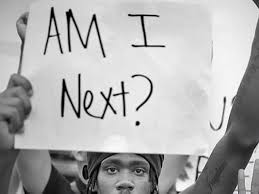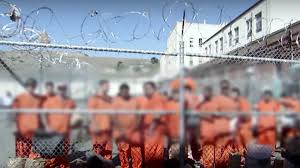 By Tatiana Solomon
By Tatiana Solomon
Two documentary films “13th” and “The Central Park Five” were shown during Black History Month at College of Southern Nevada. Both showed the inhumane treatment of African Americans in this country who were incarcerated.
Filmmaker Ava DuVernay, who was nominated for an Academy Award for Best Documentary Feature at the recent Oscars, directed the shocking and important film “13th” that explored racial inequality in the nation’s prisons disproportionately filled with Blacks.
Wendy Ide, film critic for “The Guardian,” wrote in her review dated Oct. 9, “Ava DuVernay’s lucid study of the links between slavery and the U.S. penal system is packed with ideas and information. The film takes its title from the 13th Amendment, which outlawed slavery but left a significant loophole. This clause, which allowed involuntary servitude to be used as a punishment for crime, was exploited immediately in the aftermath of the Civil War and…continues to be abused to this day.”
The viewing took place Feb. 22 at North Las Vegas campus. The small crowd was deeply moved, appalled and yet inspired by what they saw.
“It was devastating to see,” said Itzel Gallegos, criminal justice major at CSN. “Even though I’m not Black, these are our Black brothers and sisters and we have to do better for them.”
Kurt Cadet, a University of Nevada, Las Vegas student who traveled to the North Las Vegas campus specifically for the “13th” viewing, stated, “I feel that documentaries like this are something everyone needs to see, especially those who criticize the Black Lives Matter movement and justify police brutality.”
Dr. Lonnie Wright, professor at CSN and co-founder of Hospitality International Training academy that prepares incarcerated individuals for a bright and prosperous future after prison, attended the screening.
“The system is designed to keep these people in it and our plan is to get them out and make them successful in the workplace,” Wright said. “I think these screenings should be mandatory for students to attend so that they are aware of the justice system and how messed up it really is.”
According to IMDb Inc., a film database, “13th” holds a 90 out of 100 on Metacritic based on 23 critic reviews indicating universal acclaim.
“The Central Park Five,” the other film shown during Black-History Month at CSN, had a 79 out of 100 Metacritic based on 80 critic reviews, according to IMDb. It received a Peabody Award in 2013.
The documentary “The Central Park Five” examines the 1989 case of five Black and Latino teenagers who were convicted of raping a white woman in Central Park. After having spent between six and 13 years each in prison, a serial rapist confessed to the crime.
The viewing took place on Feb. 23 at North Las Vegas campus. A sizable crowd gathered and were captivated by the opportunity to meet Yusef Salaam and hear his story.
Salaam, one of the five teenagers wrongfully convicted of the crime, said in a question-and-answer session following the viewing, “In 1989, there were over 400 articles written about us. Nobody interviewed me. Nobody interviewed the others. Nobody interviewed our parents.”
 After he and the others were wrongly imprisoned, they finally got out and had to find a way to move on. Salaam mentioned his inspiration was Nelson Mandela. “Mandela said if he didn’t leave anger and bitterness in the prison, it would have destroyed him. So I definitely try remembering that at all times. People are always surprised when they see us because we have smiles on our faces. They wanted to kill us, but you would never know that by the positivity we channel,” Salaam said. He is an inspirational speaker now.
After he and the others were wrongly imprisoned, they finally got out and had to find a way to move on. Salaam mentioned his inspiration was Nelson Mandela. “Mandela said if he didn’t leave anger and bitterness in the prison, it would have destroyed him. So I definitely try remembering that at all times. People are always surprised when they see us because we have smiles on our faces. They wanted to kill us, but you would never know that by the positivity we channel,” Salaam said. He is an inspirational speaker now.
English Instructor Michael Kimball stated, “I feel a great sense of frustration that as a nation we continue falling into these cycles of discrimination based on the false narrative that we have assigned to the Black community.” Kimball thought the film screening elevated knowledge on this.
Sadyna Barnes, student at CSN, shared her thoughts on the importance of promoting events like these especially during Black-History Month. “These types of occasions bring light to situations that negatively affect African Americans today.”
Salaam closed out the event with words of inspiration. “We have the overwhelming power in our hands. It’s important to know that and to know our strength. We have to educate our young people to know their rights and it starts with you, with us, with America.”



